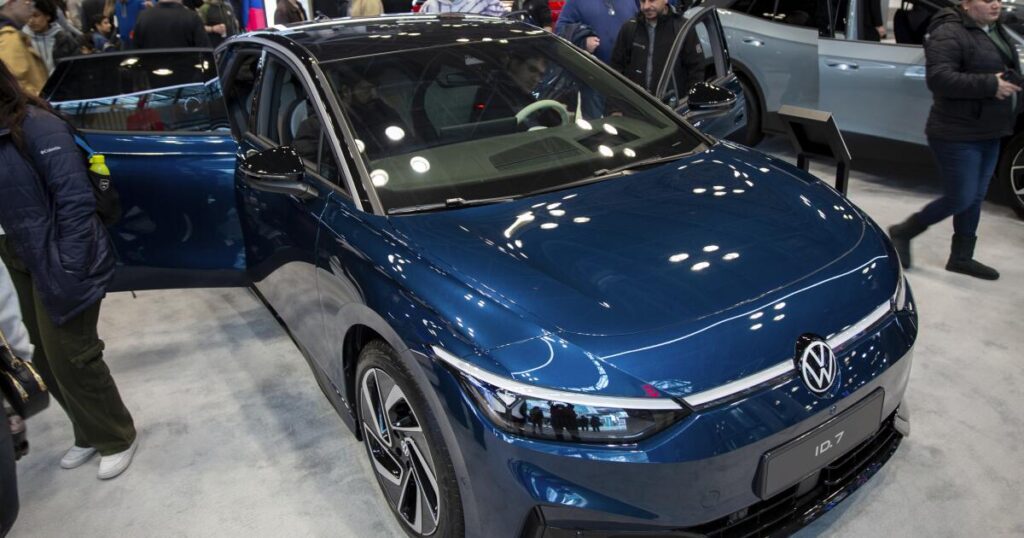
UPDATE: A heated debate over the true costs of electric vehicles (EVs) is intensifying, following critical remarks from electric vehicle advocate Paul Scott. Writing to the Los Angeles Times on October 30, 2025, Scott challenges the portrayal that new EVs are significantly more expensive than gas-powered cars, citing a reported average price difference of $8,000 according to Kelley Blue Book.
Scott argues that this comparison is fundamentally flawed as it overlooks essential external costs associated with gas vehicles, including environmental and health impacts. He emphasizes that when external costs are factored in, the financial implications of owning a gas car could be dramatically higher.
In his letter, Scott asserts, “Nobody buys the ‘average’ car,” suggesting that consumers often select vehicles that reflect their personal preferences and needs. He points to the burgeoning market for used electric vehicles, highlighting that buyers can purchase a used Tesla Model 3 for around $20,000, which he argues offers superior value compared to new gas cars priced at approximately $40,000.
Scott’s remarks come at a crucial time as the automotive industry faces shifting consumer preferences and increasing scrutiny over environmental sustainability. The push for cleaner transportation options is gaining momentum, with more buyers considering the long-term benefits of electric vehicles beyond initial purchase costs.
As discussions about the affordability of EVs continue, experts are calling for a more comprehensive analysis of vehicle costs that includes not just the sticker price but also the broader societal and ecological expenses. Scott urges journalists and industry analysts to incorporate “attribution science,” a method that quantifies these external costs, into their assessments.
The implications of this dialogue are significant. With more consumers looking to make environmentally conscious choices, understanding the full financial picture of EV ownership could influence buying decisions, potentially driving further adoption of electric vehicles.
What’s next? As the automotive landscape evolves, stakeholders from manufacturers to policymakers will need to address these concerns, ensuring that the conversation around electric vehicles is grounded in accurate, holistic financial analysis. As this story develops, the focus will remain on how these discussions shape consumer choices and industry practices moving forward.





